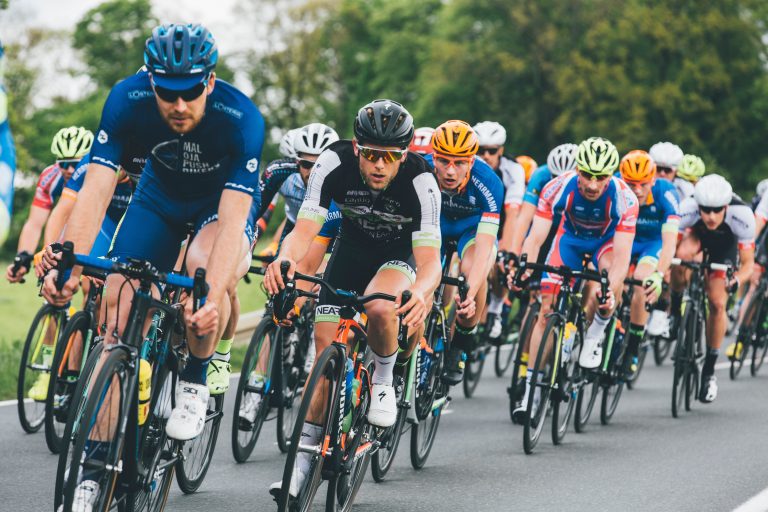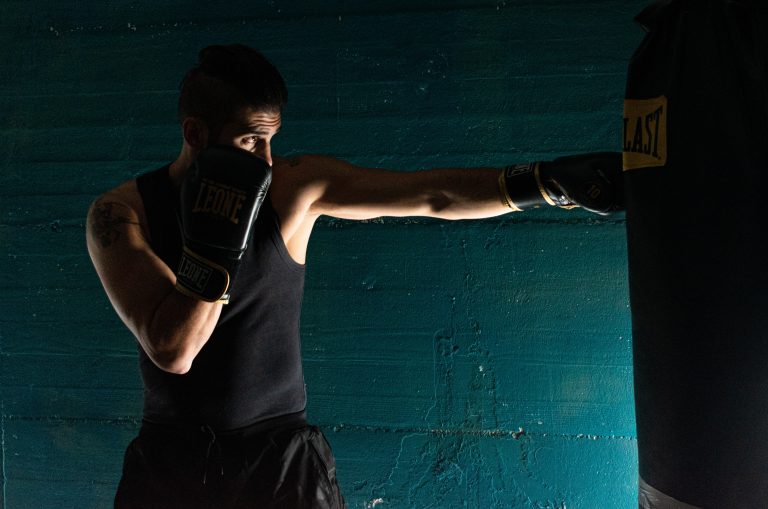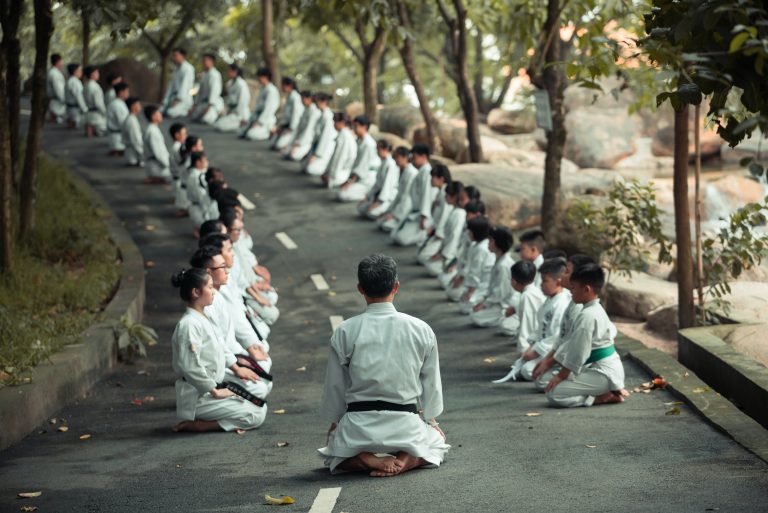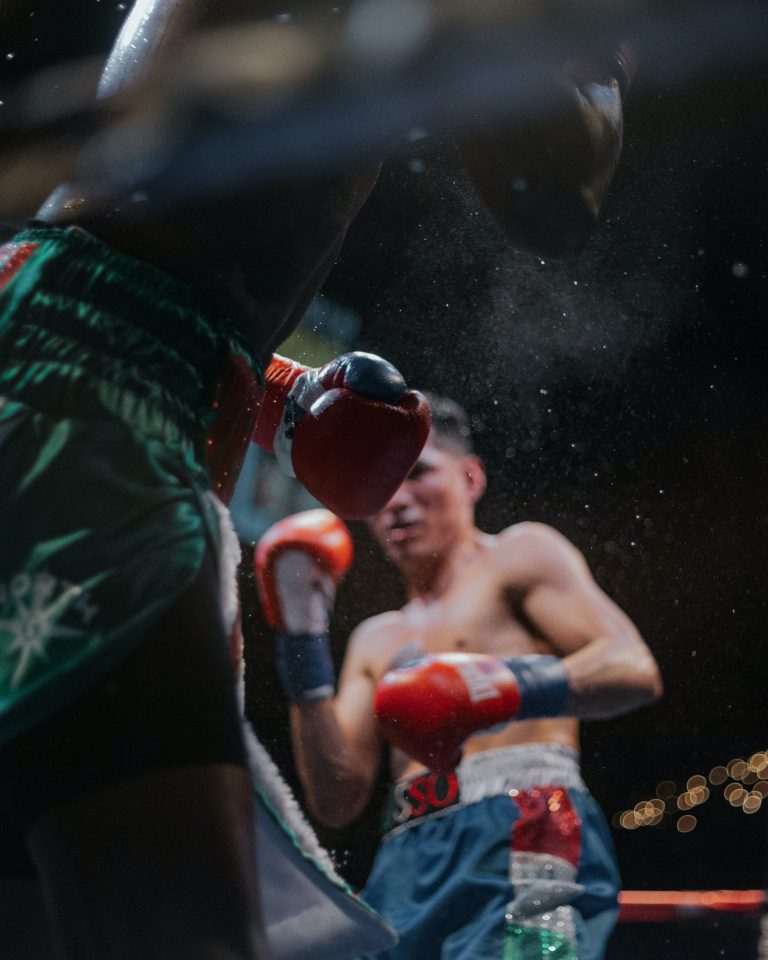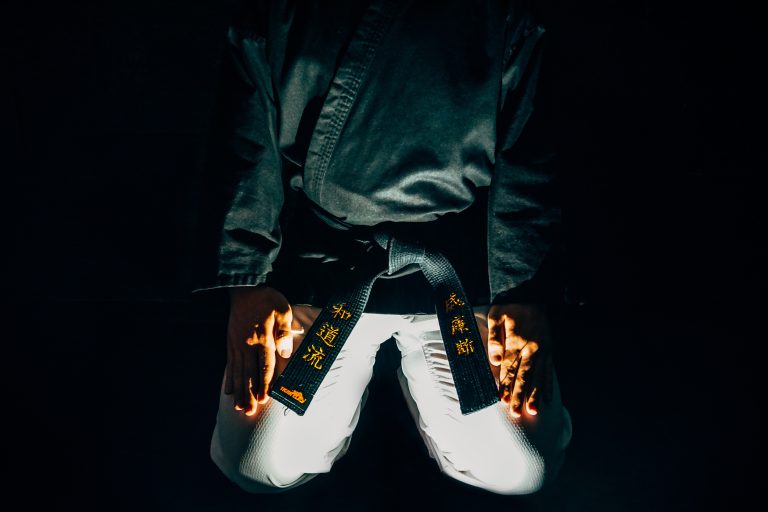Karate and the Power of Thoughts
Karate is a traditional Japanese martial art that teaches a combination of physical and mental techniques for self-defense, offense, and improved physical and mental health. Karate practitioners around the world have discovered its power to develop mental toughness, resilience, and a positive mindset.
In karate, one of the essential lessons that students learn is the power of thoughts. The way we think shapes our reality and determines our outcomes in our training and in life. When our thoughts are positive, and we focus on our training goals, we can overcome obstacles, achieve our objectives, and develop grit and perseverance.
On the other hand, negative thoughts can drag us down and limit our potential. If we doubt our ability to perform a technique or achieve a rank, we are setting ourselves up for failure. Negative thoughts and self-talk can lead to physical and mental tension, decrease our motivation, and undermine our progress.
Karate offers several tools to help students harness the power of their thoughts:
Meditation and visualization
Meditation and visualization are two powerful techniques that karate students use to focus their minds and visualize their goals. Meditation helps clear the mind of negative thoughts and distractions, while visualization helps us create vivid mental images of our desired outcomes. By practicing visualization, we can program our minds to achieve what we want and create new neural pathways that support our progress.
Affirmations
Affirmations are positive statements that we repeat to ourselves to counteract negative self-talk and reinforce our goals. In karate, we can use affirmations to boost our confidence, reinforce our knowledge of techniques, and strengthen our motivation. For example, we can say to ourselves, “I am capable of learning this new kata” or “I believe in my ability to achieve my black belt.”
Setting and achieving goals
Setting goals and achieving them is an essential part of karate training, and it is where the power of thoughts is most evident. When we set a specific, measurable, attainable, relevant, and time-bound (SMART) goal, we are directing our thoughts towards a particular outcome. By breaking down our goal into smaller steps, we can create a plan and visualize our success. As we achieve each milestone, our confidence, motivation, and positive self-talk grow, reinforcing our belief in our ability to succeed.
In conclusion, karate is not just about mastering physical techniques, but also about developing mental toughness and harnessing the power of thoughts. By using tools like meditation, visualization, affirmations, and goal-setting, karate students can cultivate a growth mindset that enables them to overcome obstacles, achieve their objectives, and thrive in life.
Frequently Asked Questions About Karate and the Power of Thoughts
Karate has been around for centuries, and the practice has evolved to include not only physical movements but also mental and emotional training. One of the most important aspects of karate is how it teaches practitioners to use their thoughts to focus their energy and power. In this article, we answer some of the most frequently asked questions about karate and the power of thoughts.
What is karate?
Karate is a martial art that originated in Japan and uses a combination of physical techniques and mental discipline to defend oneself from an opponent. It involves strikes, kicks, blocks, and grappling maneuvers. Karate is not only a physical art but also a philosophical discipline that places equal emphasis on mental and emotional training.
What is the power of thoughts in karate?
The power of thoughts in karate refers to the idea that the mind can influence the body and its movements. Thoughts can be used to create a mental image of a specific outcome, such as a successful strike or defense, which can then be translated into physical action. The power of thoughts in karate is an essential aspect of mental discipline and focus.
How can thoughts be used to improve karate technique?
Thoughts can be used to improve karate technique by setting goals and visualizing the perfect execution of a technique. By focusing on the desired outcome, a student can use their thoughts and imagination to visualize their movements, which can help them perform their techniques more efficiently and effectively. This technique is called mental rehearsal, and it is an important tool in improving karate technique.
How does mental discipline impact karate practice?
Mental discipline is a critical component of karate practice because it influences a student’s ability to concentrate, focus, and persevere through challenging situations. Mental discipline helps students develop the mental toughness necessary to overcome obstacles and achieve their goals in karate. Additionally, mental discipline can help students overcome fear and anxiety, which can be important when dealing with an opponent in a competitive environment.
What role do positive affirmations play in karate?
Positive affirmations are a tool used in karate to help students develop a positive mindset and overcome negative thinking. Positive affirmations are statements that students can repeat to themselves to focus their thoughts and improve their confidence. Examples of positive affirmations in karate might include „I am strong and capable“ or „I am confident in my abilities.“ By using positive affirmations, students can create a positive mindset that can help them perform better in training and competition.
How can karate training impact mental health?
Karate training can have a positive impact on mental health by teaching students to manage stress and anxiety more effectively. The physical and mental demands of martial arts training can help students develop resilience and coping skills that they can apply in other areas of their lives. Additionally, karate training can improve self-esteem and self-confidence, which can be essential for mental health.
How does mindfulness fit into karate practice?
Mindfulness is an important aspect of karate practice because it helps students focus their attention and be present in the moment. Mindfulness training involves being aware of one’s thoughts, feelings, and physical sensations in a non-judgmental way. By practicing mindfulness, students can improve their focus, concentration, and self-awareness, which can enhance their overall karate practice.
What are some mental exercises that can be used in karate training?
Mental exercises that can be used in karate training include visualization, mental rehearsal, and positive affirmations. Visualization involves creating a mental image of a specific outcome, such as a successful execution of a technique or an entire kata. Mental rehearsal involves mentally rehearsing a technique or kata to improve technique and performance. Positive affirmations involve repeating positive statements to create a positive mindset and improve confidence.
Final thoughts
Karate training teaches students how to use their thoughts to focus their energy and power. Mental discipline is as important as physical discipline in karate, and positive thinking and mindfulness are key elements of mental discipline. By incorporating mental exercises and techniques into karate training, students can improve their technique, performance, and mental well-being.
Inhaltsverzeichnis

